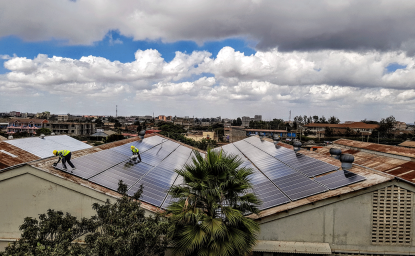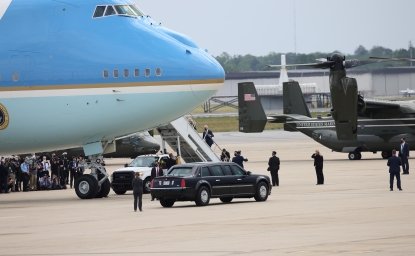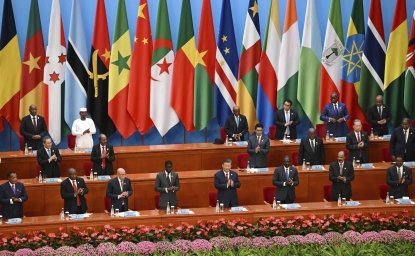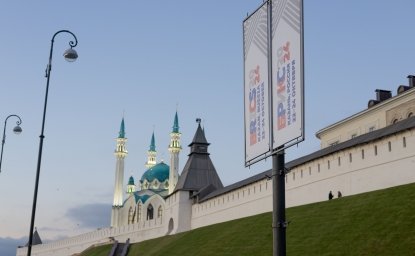
A blog of the Africa Program
Mildred is a fish trader in Kenya. I met her a few years ago, when I was conducting research. (“Mildred” is not her real name; I promised all my participants anonymity as I worked.) She mentors, trains, and educates young women on how to dry, gut, fry fish, and run successful fish businesses.
Some words she uttered a few years ago have stuck with me over my time organizing and working with fish farmers, traders, and fishing communities in the country: “When we are united, we can address issues affecting us women in fisheries.”
Mildred has a passion to unite women like her to see a better future in fisheries. In this way, she resembles another great figure from Kenya: Wangari Mathaai, who inspired and organized women in rural communities to plant trees to improve their livelihoods and empower each other to speak up for their rights.
I reunited with Mildred in 2022 as a person who now possessed a wealth of my own experience. Yet I remained inspired by her unwavering passion to continue weaving strands of change, one person at a time. Today, she heads Umoja Women’s Group—and also is a member of other women’s groups in her community.
For many years, women at all levels have organized to combat issues such as gendered social inequalities, the lack of political representation in governance, and violations of human rights—including Female Genital Mutilation (FGM) and Gender-Based Violence (GBV).
Women in Kenyan fisheries are no exception. Yet the question remains: are women’s organizations and movements at the top levels really addressing the day-to-day needs of women at the grassroots level in the fisheries sector?
Mildred and other women like her are key actors in fisheries management and governance, working for environmental conservation, socio-economic empowerment, and policy changes in the fisheries sector. Yet they continue to face challenges relating to gendered cultural norms; access to fish, land, money, and market; gender-based violence and high poverty; among other issues.
Their work at local levels to grapple with issues not addressed by other organizations provides a way for these women to empower each other, shift power relations, and resist different forms of socioeconomic marginalization and violence to women’s and girl’s rights in fisheries and beyond.
Shifting Narratives and Accessing Resources
When women in fisheries organize at the grassroots level, they are shifting the narrative away from a view of women as victims and to a new story: women as actors creating change.
The struggle for access to fish and fisheries resources is a major part of this organizing. Lack of such access has been a major constraint for women in the industry, especially due to declining capture fisheries, increased competition, and a changing climate.
Examples of this work abound. In coastal Kenya, Kibuyuni Seaweed Self-Help Group helps women organize to create a web of wealth, self-reliance, and improvements in their livelihoods through seaweed farming. And women living near Lake Victoria are organizing to own boats to end fish-for-sex and economically rely on themselves, not fishermen.
Obtaining money is essential for this work of change. Through existing informal systems like table-banking and merry-go-round groups, women are organizing and contributing to save and lend money to each other to address their need to access capital and credit. Women in the fisheries industry are often denied such access because they lack collateral and title deeds to access finance through formal institutions. Yet they need resources to buy fish, food, pay school fees for their children, and attend to health emergencies.
Women fish mongers organizing for market access in areas within the periphery of Nairobi city have benefitted from accessible, available, and affordable credit from partnership organizations such as Victory Farms (one of the fastest growing integrated commercial aquaculture farms in Kenya) and Pezesha—a digital finance platform that makes formal institutions accessible to women fish traders.
Grassroots organizing also occurs through social welfare groups aimed at addressing issues such as GBV within the home, fish landing sites, and other village issues. My own recent research demonstrates that a lack of existing institutions and community structures at Kenyan fish landing sites has led women to create support, counseling, and reconciliation groups for victims of GBV. These social welfare groups also address immediate individual needs such as attending to health emergencies and burial ceremonies.
The environment is also a locus of organizing. Pweza women’s groups in coastal Kenya are working to conserve coral reefs through fishing closures, as well as planting mangroves. The goal is to empower each other and to improve their livelihoods by promoting sustainable usage of fisheries resources.
Finally, peace and dialogue is also gaining grassroots attention in fishing communities experiencing conflict. In my field research in Busia, Kenya, I found that women and their fishermen husbands, relatives, and friends have been victimized, harassed, and robbed of their property and dignity in transborder conflicts. To address these grievances, and to heal and reconcile, women organize to listen and hold conversations with those affected by these events.
Elevating Grassroots Movements
For decades, rural women like Mildred have been underrepresented in national, regional, and international dialogue and policy-making spaces, despite their participation and contribution to local fisheries governance and sustainable futures.
Recognizing the disconnect between women’s representatives at international and national levels and women in rural fishing communities help us better understand why this continues. Representation and participation in national, regional, and international organizations continues to be influenced by disparities in education, income, class, and status, and addressing these deep-rooted inequalities is necessary to bridge the gaps between these structures and Kenyan women in fisheries, aquaculture, and beyond.
If we want to effectively lift up grassroots women’s organizing, we must reimagine our approaches to strengthen existing groups. Building on previous accomplishments is one key step. State-led projects, and research institutions, non-governmental and non-profit organizations should collaborate with existing women’s groups as educational and counseling hubs. Government agents and NGOs should expand available resources for women-led initiatives at the local level, and encourage partnerships between local, county, and national governments and women’s groups.
Mildred’s Umoja Women’s Group is one example of a group that might benefit. It is critical that rural women’s needs and experiences are prioritized for action. Only through organizing which is representative of all women and their unique needs can we truly begin to see grassroot change.
Margaret Gatonye is a Ph.D. Candidate in Global Governance and Human Security at University of Massachusetts, Boston, John W. McCormack Graduate School of Policy and Global Studies. Her current research examines the intersection of fisheries, women, and socio-economic marginalization in Kenyan fishing communities.
This post was originally released to New Security Beat, the blog of the Wilson Center Environmental Change and Security Program and has been cross-posted to Africa Up Close by request and with permission of ECSP.
Author

Environmental Change and Security Program
The Environmental Change and Security Program (ECSP) explores the connections between environmental change, health, and population dynamics and their links to conflict, human insecurity, and foreign policy. Read more


Africa Program
The Africa Program works to address the most critical issues facing Africa and US-Africa relations, build mutually beneficial US-Africa relations, and enhance knowledge and understanding about Africa in the United States. The Program achieves its mission through in-depth research and analyses, public discussion, working groups, and briefings that bring together policymakers, practitioners, and subject matter experts to analyze and offer practical options for tackling key challenges in Africa and in US-Africa relations. Read more





